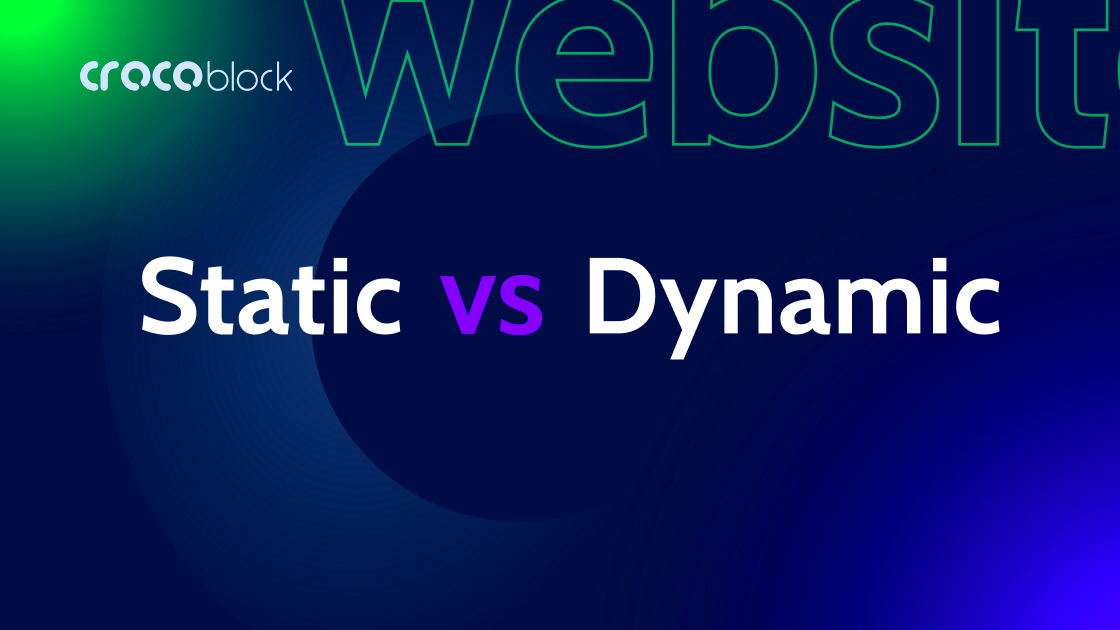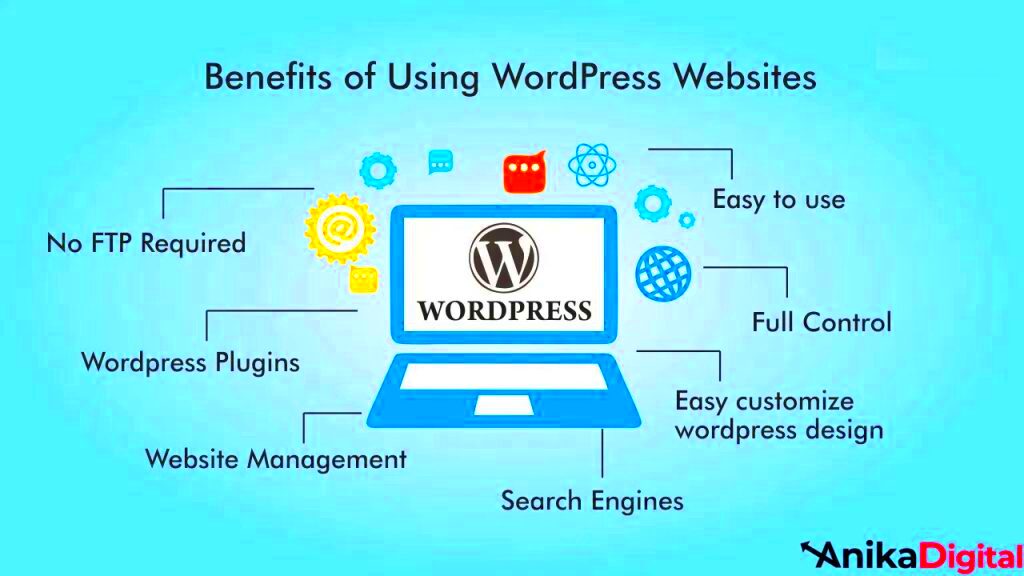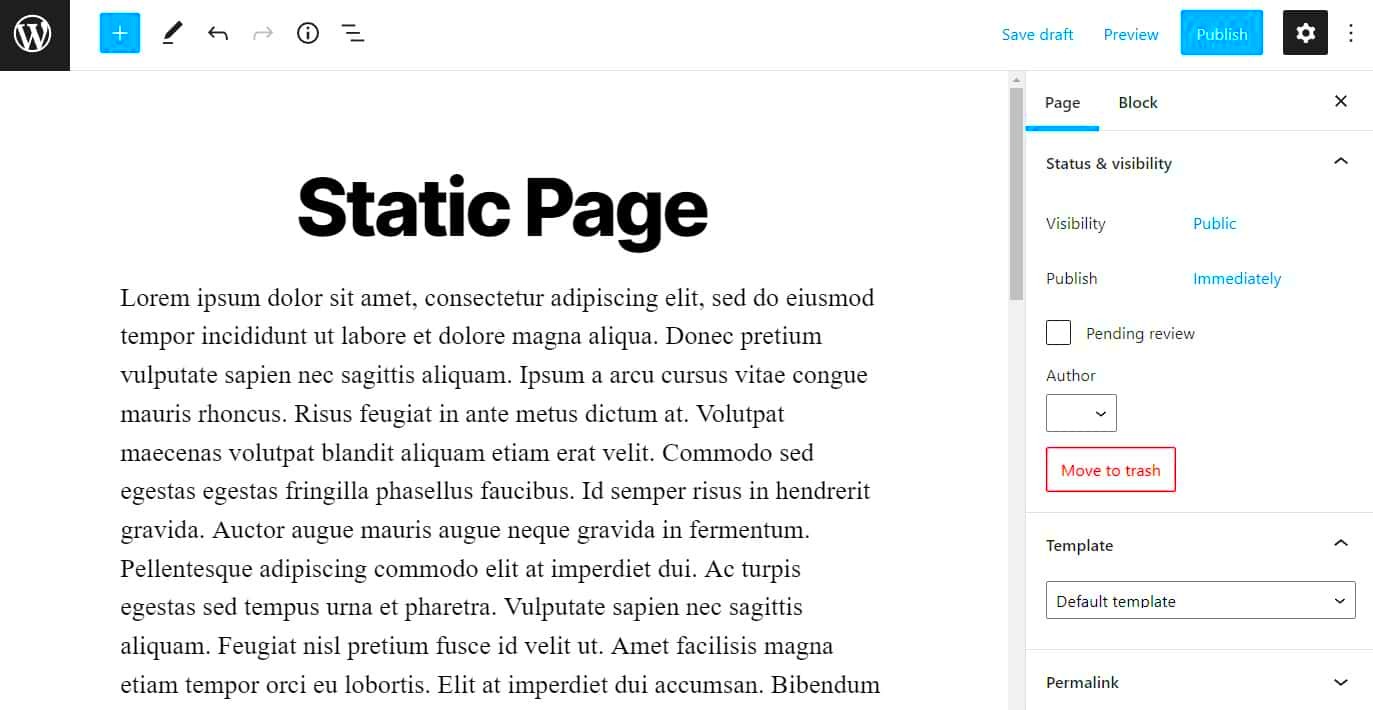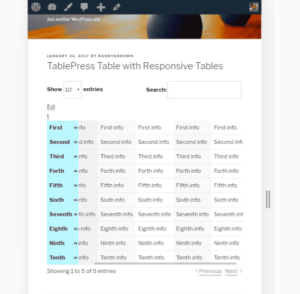Hey there! If you’ve been exploring the world of WordPress, you might have stumbled upon the term “static WordPress sites.” But what exactly does that mean? A static
Improved Performance and Loading Speed

One of the standout benefits of using a static WordPress site is the improved performance and loading speed. In today’s fast-paced digital world, users expect pages to load quickly. If your site is slow, visitors are likely to click away before it even fully loads. Here’s how static WordPress sites shine in this regard:
- No Database Queries: Static sites eliminate the need for database queries that dynamic sites rely on. This means your server has less workload, greatly improving response times.
- Content Caching: With your content pre-built into HTML files, it can be delivered directly to users without any processing delay.
- Reduced Server Load: Because the server doesn’t have to run complex scripts or pull data from a database for each request, it can handle more simultaneous users without crashing or slowing down.
- Faster Load Times: Research indicates that users expect a page to load in under 3 seconds. A static site can often meet this expectation, leading to higher engagement and lower bounce rates.
In short, the combination of reduced server workload and faster content delivery means your static WordPress site isn’t just quick—it’s capable of providing a better user experience overall. And let’s be honest, who doesn’t want that?
Enhanced Security Features

When it comes to websites, security is a top concern for both owners and users. One of the remarkable benefits of using a static WordPress site is its enhanced security features. Unlike dynamic sites that use databases and other server-side processes, static sites generate HTML pages that require less interaction with server-side scripts. This reduced complexity greatly minimizes the potential attack vectors that hackers typically exploit.
Here are a few key reasons why static WordPress sites offer improved security:
- No Database Vulnerabilities: Static sites eliminate the need for a database, thus reducing the risk of SQL injection attacks, which are a common threat to dynamic websites.
- Fewer Plugins: With static sites, you can significantly reduce or even eliminate the use of plugins. Since many security vulnerabilities come from poorly maintained or outdated plugins, this is a major benefit.
- Less Frequent Updates: Static sites require fewer updates compared to their dynamic counterparts, which often need regular patching for WordPress core, themes, and plugins. With less maintenance, the chances of a security breach are diminished.
- Easy Integration with Security Tools: You can easily integrate various security tools and Content Delivery Networks (CDNs) to enhance your site’s protection, adding an extra layer of security against DDoS attacks and other threats.
In today’s digital landscape, safeguarding your site should be a priority. By opting for a static WordPress site, you not only simplify your security needs but also provide peace of mind to your users, knowing their information is adequately protected.
Lower Hosting Costs
If you’re running a business or managing a website, keeping an eye on expenses is vital. One of the standout perks of utilizing a static WordPress site is the potential for significantly lower hosting costs. Because static sites consist of simple HTML files rather than a complex architecture, they can be hosted on various affordable hosting services or even on free platforms.
Here’s how a static WordPress site can save you bucks:
- Simpler Hosting Options: You can host static websites on simple servers, which are generally cheaper than those needed for dynamic sites. Services like GitHub Pages or Netlify even offer free hosting for static sites, which can help you save money.
- Reduced Server Resources: Since static sites have low resource demands, you can opt for shared hosting plans that cost much less than dedicated options. This means savings on monthly hosting bills.
- Scalability Without High Costs: Static sites can handle spikes in traffic seamlessly without requiring costly infrastructure enhancements, making them ideal for cost-effective scaling during busy periods.
- Minimized Bandwidth Use: Static sites typically consume less bandwidth than dynamic alternatives since they deliver pre-built HTML files. This can lead to reduced fees, especially if you’re on a usage-based hosting plan.
By leveraging the advantages of a static WordPress site, you can not only enjoy a more streamlined operation but also see your hosting costs take a significant dip. It’s a win-win situation that can free up resources for other important aspects of your website or business.
Scalability and Reliability
When it comes to running a website, scalability and reliability are two of the most important factors to consider. Static WordPress sites excel in these areas, making them an excellent choice for many businesses and individuals.
Static sites are incredibly scalable because they serve pre-built HTML pages that do not rely on server-side processing. This means that even during high traffic times, your site can handle a sudden influx of visitors without breaking a sweat. Here’s why scaling with a static site is a breeze:
- Simple Hosting: Static sites can be hosted on various platforms, including CDNs (Content Delivery Networks), which distribute your content across multiple servers. This means users access the site from a server closest to them, resulting in faster load times.
- Faster Response Times: With no database queries or complex back-end processes, static sites can quickly respond to user requests, which improves user experience and mitigates server overload.
- Cost-Effective: Scaling a static site often requires fewer resources compared to dynamic sites, making it more budget-friendly. You won’t need to invest heavily in hosting plans to manage increased traffic.
When it comes to reliability, static WordPress sites shine just as brightly:
- No Database Dependency: By removing the SQL database, you eliminate the risk of database errors or downtime caused by poor database performance.
- Security: Static sites have fewer vulnerabilities since there’s less server-side code and no complex processes to exploit.
- Consistent Performance: Regardless of the resources being utilized on the server, static sites will maintain consistent loading speeds.
In summary, if you’re looking for a website that can grow with your needs while remaining reliable, a static WordPress site is undoubtedly the way to go!
Better SEO Advantages
Search Engine Optimization (SEO) is crucial for ensuring your website gets noticed in the vast sea of the internet. A static WordPress site offers numerous advantages that can significantly boost your SEO efforts.
One of the pivotal benefits of static sites is their speed. Google and other search engines favor faster-loading sites, and static pages load considerably quicker than their dynamic counterparts. Here’s how a static site can help you with SEO:
- Faster Load Times: With static HTML files being served to the browser directly, loading speeds are drastically improved, leading to a better user experience and potentially higher search rankings.
- Improved Crawlability: Search engine bots can easily crawl and index static pages. The cleaner code structure and lack of database-related complexities make it straightforward for search engines to understand your site.
- Enhanced User Experience: Since static sites usually offer faster loading times, users are likely to bounce less and spend more time engaging with your content—two factors that positively influence SEO rankings.
But there’s more! Static WordPress sites also facilitate better content management, leading to more effective SEO strategies:
- Consistent URLs: Static sites generally have fixed, easily readable URLs, which search engines prefer and users appreciate. This consistency allows for better link-building opportunities.
- Less Tech Maintenance: Fewer updates mean fewer chances of breaking things or encountering SEO-related issues due to plugin malfunctions.
- Improved Security: A secure site is a must for modern SEO as search engines favor secure connections (HTTPS). Static sites are less vulnerable to common exploits, enhancing your overall security posture.
In summary, if you aim to boost your online visibility and drive organic traffic, utilizing a static WordPress site can offer unparalleled SEO advantages!
Simplified Maintenance and Updates
One of the standout benefits of using a static WordPress site is the simplified maintenance and updates process. Imagine not having to constantly worry about updates for themes, plugins, and the WordPress core itself. With a static site, most of that maintenance hustle is significantly reduced!
Here’s why simplified maintenance is a game-changer:
- Less Frequent Updates: Static sites don’t rely on dynamic content generation, meaning plugins and themes don’t need constant updating. This reduces the risk of compatibility issues and downtime.
- Fewer Security Risks: A static site presents fewer vulnerabilities. With no database and fewer moving parts, the chances of being attacked by malicious scripts diminish dramatically.
- Quick Fixes: If you ever do need to make changes or updates, you can do it easily through a code editor. No more navigating complex backend interfaces!
- Streamlined Backups: Backing up a static site is incredibly easy. You can simply save copies of the HTML files, which can be automated with various tools, ensuring your data is always secure.
In essence, a static WordPress site allows you to focus more on creating fantastic content rather than managing a ton of moving parts. Less time spent on updates means more time to engage with your audience!
Ideal for Content-Heavy Websites
If your website is packed with content—think blogs, portfolios, or publications—a static WordPress site can be an excellent fit. By serving content directly from HTML files, static sites provide quick load times and an improved user experience, both of which are crucial for engaging your audience.
Here’s why static sites shine for content-heavy areas:
- Faster Load Times: Static sites are often significantly faster than dynamic ones because they serve pre-generated files. When visitors click on a link, they do not have to wait for database queries or heavy scripts to run, leading to immediate access to content.
- Better SEO Performance: Speed is a critical factor for SEO, and search engines favor faster-loading sites. Plus, with less complexity, your content can be more easily indexed.
- Reduced Server Load: Static sites consume fewer resources, making them an economical choice. They can handle a higher volume of traffic without crashing—a boon for popular content-heavy sites.
- Easy Deployment: When it’s time to publish new articles or updates, deploying a static site is a breeze. You can simply push your changes to your hosting server without any tedious updates.
In summary, if you thrive on delivering a wealth of high-quality content, a static WordPress site can substantially enhance your website’s performance and user satisfaction. With easier management and optimal loading speeds, you’ll be well-positioned to connect meaningfully with your audience.
Benefits of Using a Static WordPress Site
In the ever-evolving digital landscape, businesses and individuals are continually seeking ways to enhance their online presence. One effective solution that has gained popularity is the use of a static WordPress site. Below are some notable benefits:
- Performance and Speed: Static WordPress sites deliver lightning-fast load times. Since they serve pre-rendered HTML files, users experience minimal latency, improving user experience and resulting in better SEO rankings.
- Enhanced Security: With fewer server-side components and a reduced attack surface, static sites are less vulnerable to common web threats such as SQL injection and DDoS attacks.
- Cost-Effective Hosting: Static sites require less server resource usage, meaning they can be hosted on affordable services like GitHub Pages, Netlify, or even a simple CDN, resulting in lower hosting costs.
- Scalability: These sites can easily handle high traffic without the need for extensive server resources, making it ideal for large campaigns or seasonal spikes in traffic.
- No Database Required: By eliminating the need for a database, static sites reduce complexity and operating costs for clients, allowing for simpler management and maintenance.
- Version Control: Since static sites consist of simple files, they are easier to version control using Git, enhancing collaborative development processes.
In summary, transitioning to a static WordPress site can provide myriad benefits, including improved performance, security, and cost-saving advantages. It’s essential to assess your specific needs and goals to determine if this solution aligns with your online strategy. If speed, security, and simplicity are priorities for your website, a static WordPress site might just be the ideal choice.



